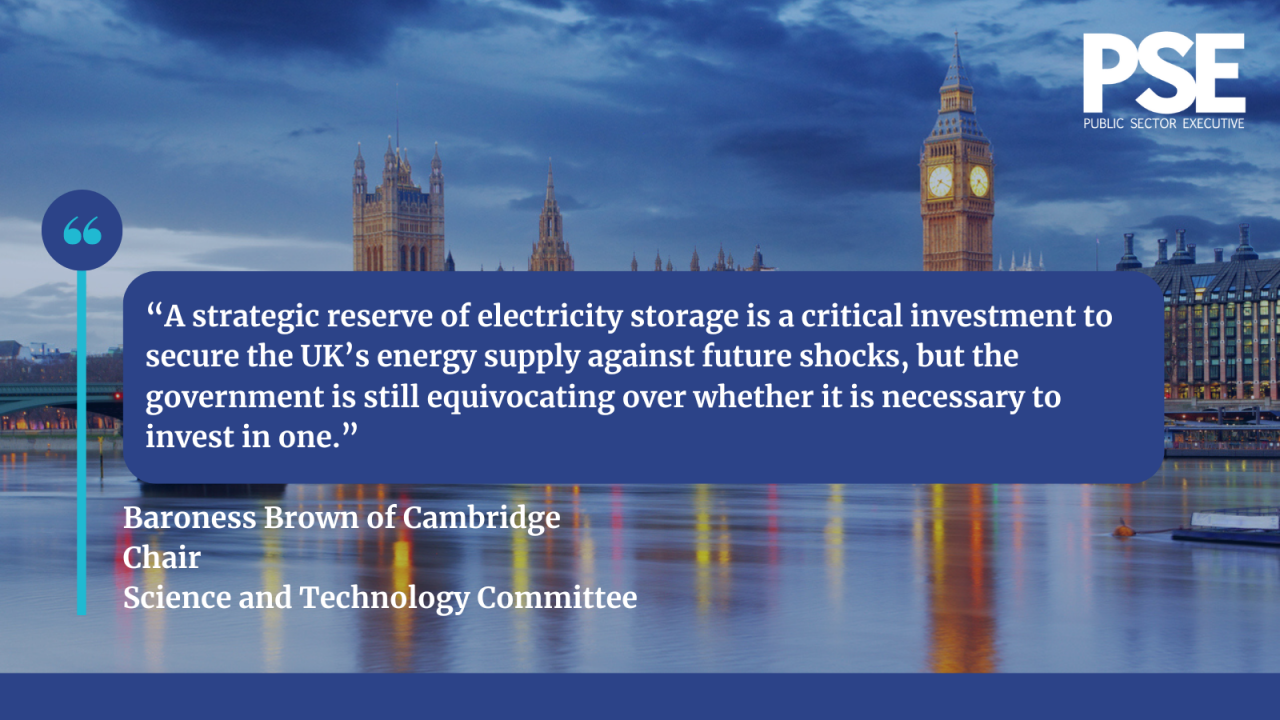The government has been warned by the House of Lords that it needs to act quickly to ensure that long-duration energy storage technologies are able to scale up in time to support the decarbonisation of electricity by 2035.
This comes as a report from the Science and Technology Committee publishes its ‘Long-duration energy storage: get on with it’ report, which states that the government needs to make major decisions about the future of the nation’s energy structure, and then implement them urgently.
Alongside the call to make big decisions, the committee has outlined how a coordinated effort is needed to invest in long-duration energy storage and to make sure that a strategic energy storage reserve is delivered. The end result of this will be to bring about net zero sooner, whilst also keeping the UK’s future energy supply safe from issues such as the recent energy crisis.

Chair of the Committee, Baroness Brown of Cambridge, commented on the government’s lack of a plan, saying:
“In light of the huge economic damage the recent energy crisis has caused, it is distressing to see that the government lacks a clear plan for energy supply risks and indeed s still deliberating over investment in long-duration storage to prevent future crises. A strategic reserve of electricity storage is a critical investment to secure the UK’s energy supply against future shocks, but the government is still equivocating over whether it is necessary to invest in one.”
Through the report, a number of recommendations have been made to the government, including:
- Committing to a long-duration energy storage strategic reserve, ensuring energy security
- Not waiting to make important decisions and then implementing an energy system plan
- Setting an explicit minimum target for long-duration energy storage
- Laying out the details of its long-duration business model
- Clearing up the role of hydrogen in the future of the nation’s energy system and delivering investments in hydrogen
- Acting urgently, reducing timelines for grid connections and planning delays
- Engaging and communicating with the public to make sure that there is support for hydrogen and electricity infrastructure.
Baroness Brown also commented on the timescales involved in this work:
“The government says it wants to deploy enough storage both to balance and to decarbonise the electricity system by 2035, but we are not on track. Long-duration energy storage facilities can take 7-10 years to build, so action is needed now to ensure the private sector sees a clear case to invest and to slash planning delays and grid connection queues if we are to have to required infrastructure in place by 2035…
“The government must take action now.”
The committee has welcomed recent reforms to the energy system, with this including the commitment to delivering a Strategic Spatial Energy Plan, however it has raised concerns that there is no clarification over who will be responsible for bringing the plan into use.
Image credit: iStock



















